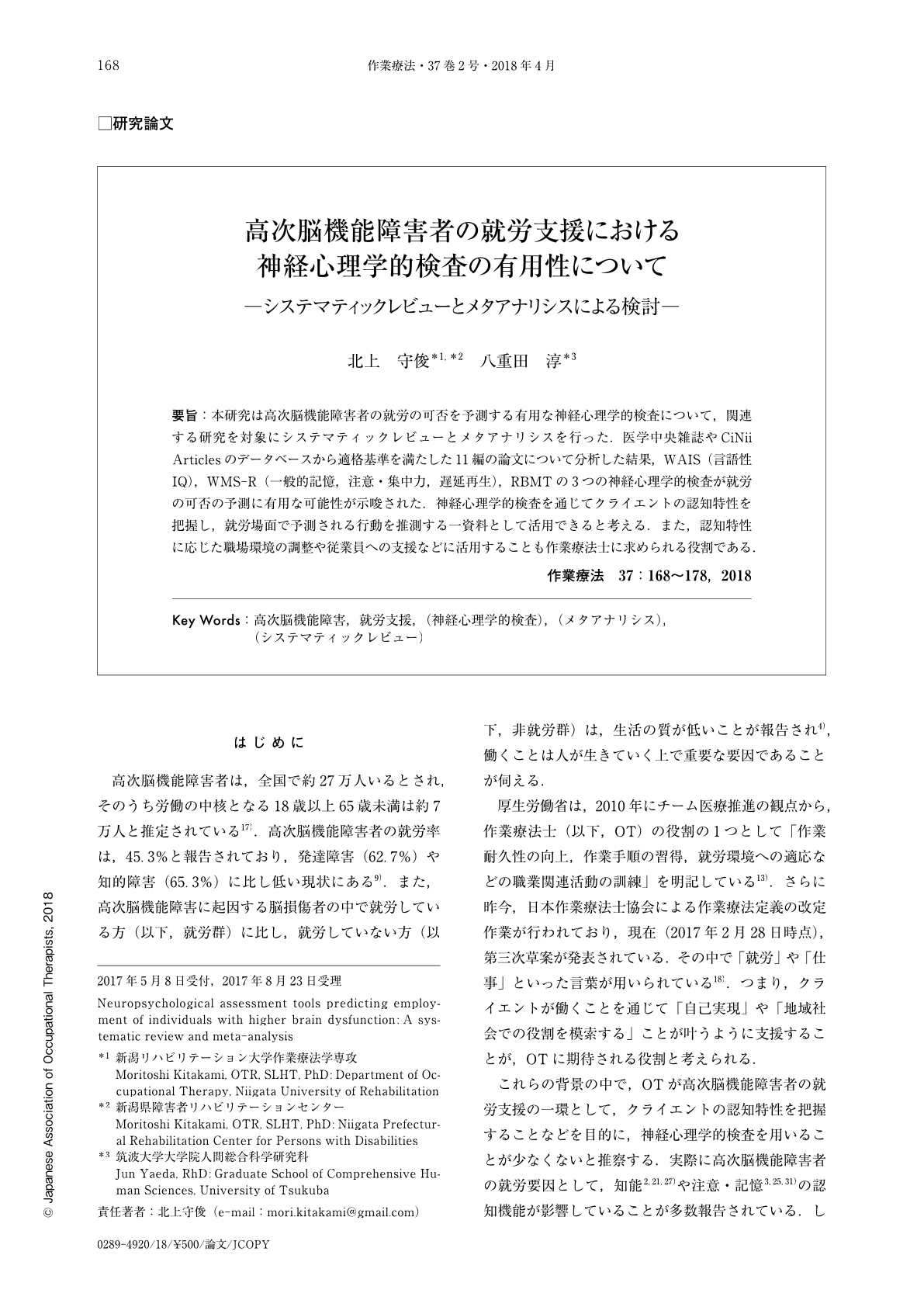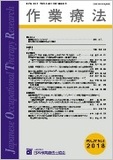Japanese
English
- 販売していません
- Abstract 文献概要
- 1ページ目 Look Inside
- 参考文献 Reference
- サイト内被引用 Cited by
要旨:本研究は高次脳機能障害者の就労の可否を予測する有用な神経心理学的検査について,関連する研究を対象にシステマティックレビューとメタアナリシスを行った.医学中央雑誌やCiNii Articlesのデータベースから適格基準を満たした11編の論文について分析した結果,WAIS(言語性IQ),WMS-R(一般的記憶,注意・集中力,遅延再生),RBMTの3つの神経心理学的検査が就労の可否の予測に有用な可能性が示唆された.神経心理学的検査を通じてクライエントの認知特性を把握し,就労場面で予測される行動を推測する一資料として活用できると考える.また,認知特性に応じた職場環境の調整や従業員への支援などに活用することも作業療法士に求められる役割である.
The present study conducted a systematic review and meta-analysis to identify effective neuropsychological assessment tools predicting employment of individuals with higher brain dysfunction. Eleven research articles that met the eligibility criteria were analyzed using CiNii and Ichushi-Web of Japan Medical Abstracts Society. Results showed that WAIS (Verbal IQ), WMS-R (General memory, Attention/Concentration, Delayed recall), and RBMT were the 3 neuropsychological assessment tools predicting employability. Using these tools, cognitive functions of given clients may be well assessed while predicting behavioral aspects at workplaces. Implications include the role of occupational therapists with knowledge translation skills, which in turn should lead better job accommodations and employees assistance on the job.

Copyright © 2018, Japanese Association of Occupational Therapists. All rights reserved.


